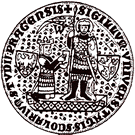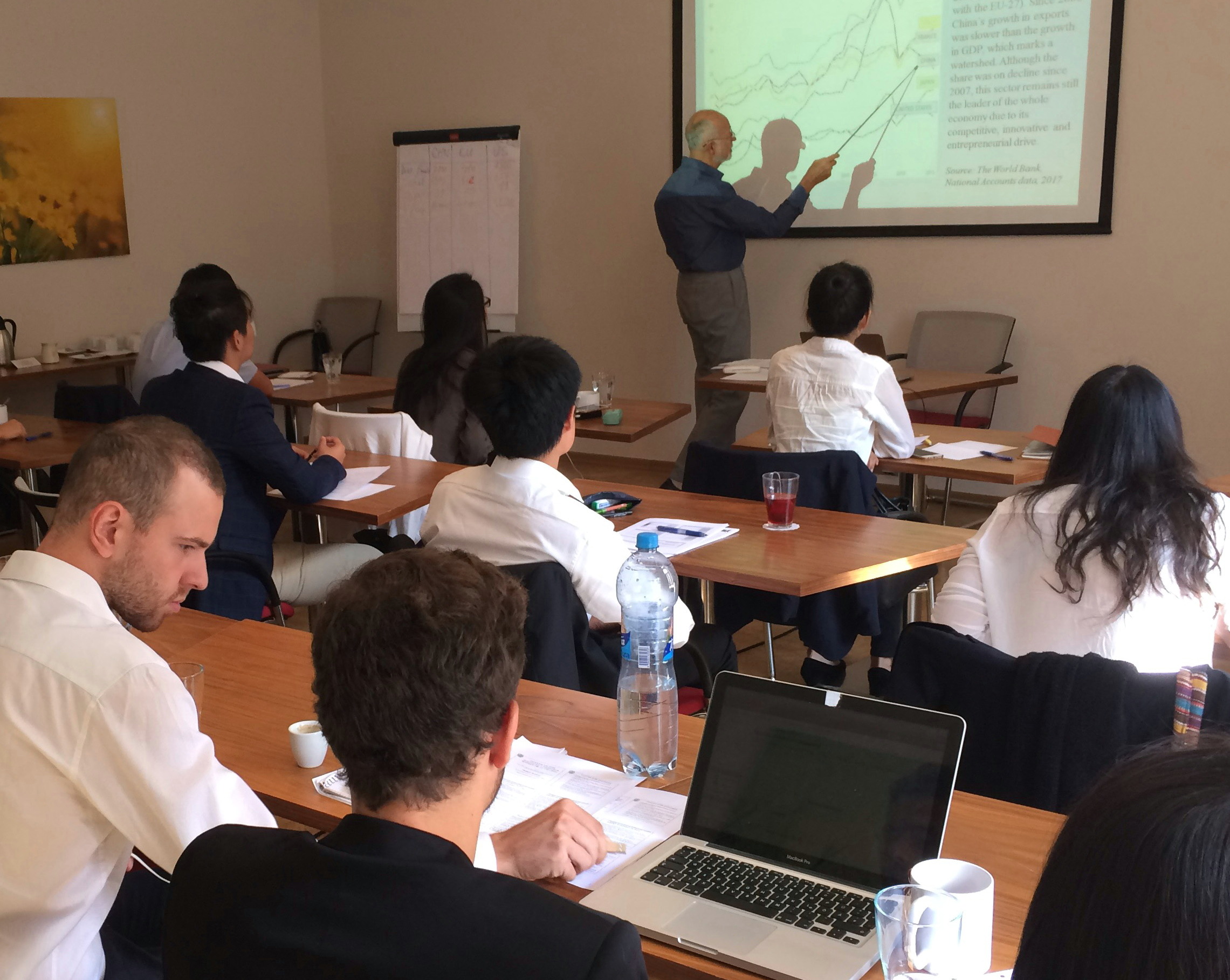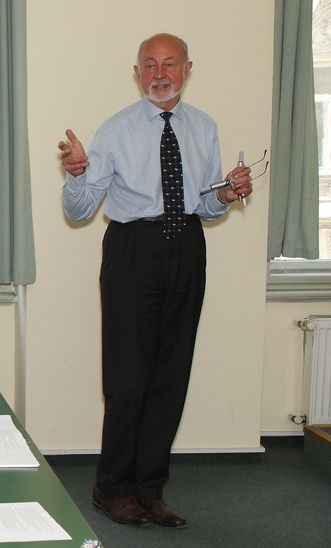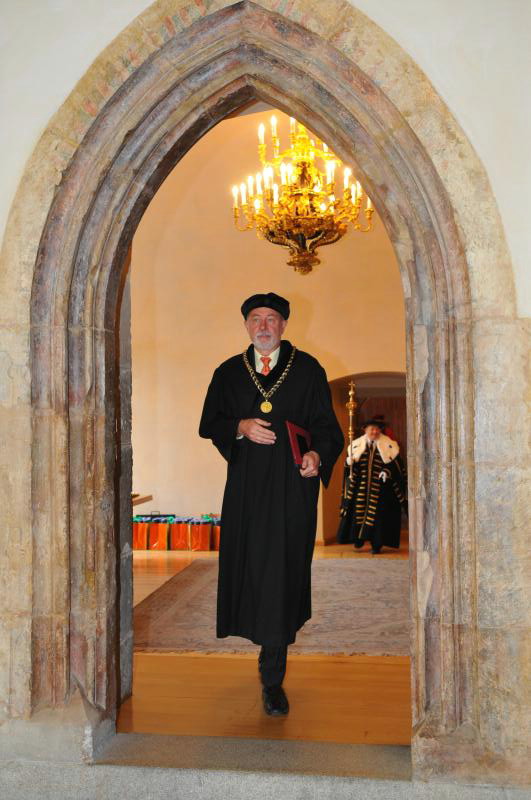Courses taught by Vladimír Benáček
at Charles University, Faculty of Social Sciences,
Institutes of Economic Studies and Political Studies,
and at some other institutions
There are five courses I enjoyed most.
All were taught at Charles, Economics.
The reason was simple: there were the brightest stdents, keen to learn more and endure the challenges.
INTERNATIONAL TRADE (1992-2017)
INTERNATIONAL POLITICAL ECONOMY (2012-18)
INTERNATIONAL FINANCE (1992-2018)
MASTER THESIS SEMINAR of the IEPS programme (2012-18 both semesters)
PHILOSOPHY, ECONOMICS AND POLITICS - CURRENT DEBATES (2012-18) - debates club
Some on-line texts for trade and finance courses:
Deardorff's Glossary of International Economics and picture gallery. All Int Trade topics are covered there !!!
Textbook "International Trade: Theory and Evidence" by Markusen, Melvin, Kaempfer and Maskus - for free download.
S. Suranovic - Int. Trade textbook free browsing or $18
S. Suranovic - Int. Finance textbook free browsing or $18
CLICK HERE for more website links helping you in the study.
Other courses that I have taught in my academic career:
Programming in PL/I, Basic and Fortran, statistics and regressions - at the Graduate School, Economics Institute, Academy of Sciences. 1981-1989.
Introductory economics - at Charles University, FSV, MA in jouralism. 1990-92.
Economics of trasformation and privatization - at The World Bank-IDA and at CERGE-EI. 1993-1995.
Selected theories of international trade II - at FSV-Economics for MA. 2007-09.
Economics of the EU integration - at FSV-Economics. 2008-12.
International financial management - at the CMC Prague for Thunderbird MBA School/Arizona. 2004.
International trade and business - at the Anglo-American University Prague. 2007-2011.
Economics of trade and integration in Latin America - at the Economic University Prague. 2010-11.
Statistics and econometrics in Excel. 2017-19.
Additional information about the master's courses for students from abroad taught in English.
Additional information about the bachelor's courses for students from abroad taught in English.
See here what to study at the FSV of Charles University if you are an inquisitive person keen to know more about the phenomena of international socio-political and economic problems? And while you are not so much keen to study axiomatic models because you are an empirical and policy-oriented analyst.
_ _ _ _ _ _ _ _ _ _ _ _ _ _ _ _ _ _ _ _ _ _ _ _ _ _ .
One of the IES student think-tank members brushing up her essay on
"Currency Default Swaps and Covered Arbitrage in Offseting the Liabilities of Countervailing Duties"
at work in the students' attic lounge.
Some quizes for the university pundits:
What is a university lecture ? :
a/ It is an art of transmitting the notes of the lecturer to the notes of students without passing through the minds of either.
b/ It is a confusion of one man multiplied by the number of students present plus one.
c/ It is a two-way communication between students and the teacher where both learn about the world and about themselves from their mutual work and from the spillovers of externalities so created.
Who is an economist ? :
a/ An economist is an expert who supplies models for obtaining the results the society demands.
b/ An economist is an expert who will know tomorrow why the things he predicted yesterday didn't happen today. (According to Laurence J. Peter)
Who is the author of the following three views on modern economics (and economies)? You may choose between Lionel Robbins, Albert Einstein and Groucho Marx:
a/ As far as the laws of economics refer to reality, they are not certain, and as far as they are certain, they do not refer to reality.
b/ Confusion of goals and perfection of means seems, in my opinion, to characterize our age.
c/ Any fool can make things bigger, more complex, and more violent. It takes a touch of genius - and a lot of courage - to move in the opposite direction.
a/ Capitalism is the art of convincing people to spend money they don't have for something they don't need.
b/ The problem with socialism is that you eventually run out of other peoples' money.
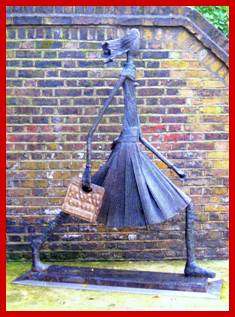 . . . . . . . . . .
. . . . . . . . . .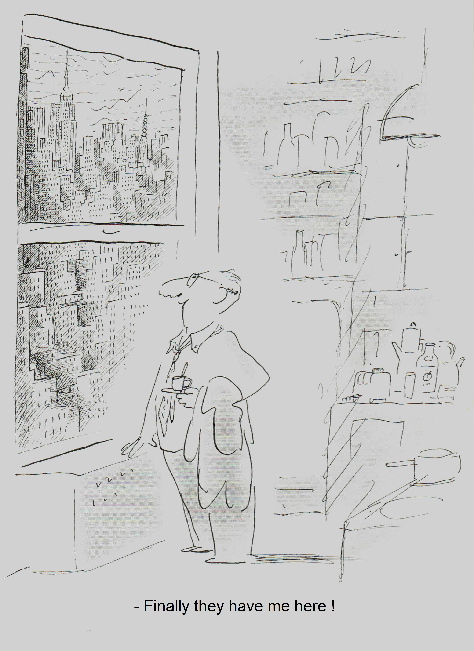
Two different expectations of an economist

related to the state of social sciences in our enlightened world.
It is from Gulliver ´s Travels (1726, part 3, chapter 6) where Gulliver visits the Great Academy of Lagado and describes with satire
the naive thinking of the scientists in the school of political projectors:
"I was but ill entertained: the professors appearing, in my judgment, wholly out of their senses . . .
These unhappy people were proposing schemes for persuading monarchs to choose favourites
upon the score of their wisdom, capacity, and virtue; of teaching ministers to consult the public good;
of rewarding merit, great abilities (and) eminent services; of choosing for employments persons
qualified to exercise them, which all confirmed in me the old observation, that there is nothing so extravagant
and irrational, which some philosophers have not maintained for truth.
First computer patented in 1723 "LAGADO1": . . . 
See more fun about the Great Academy at Gulliver chapter 6.
Well ... there were some changes in the last 300 years: present academics use much better computers for it!
Updated 6 Jan 2025
